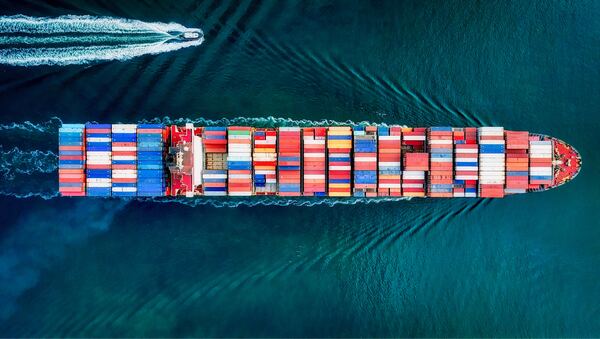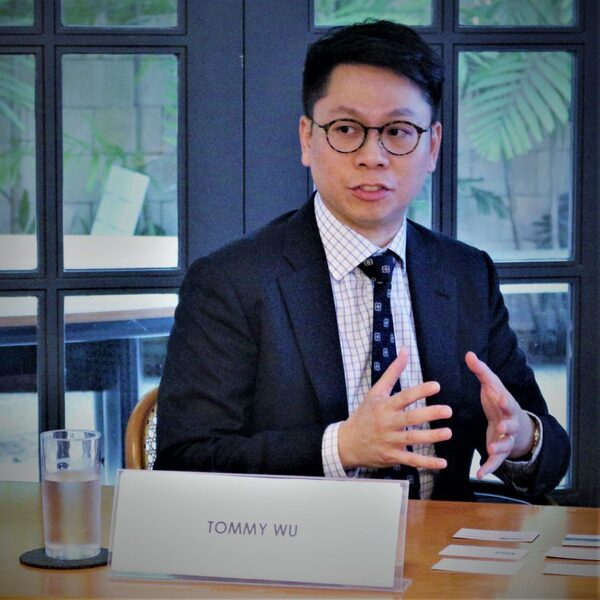
Korea’s economy will grow just 2.3 percent this year, its second worst performance in the 21st century after a mere 0.7 percent spurt in 2009, a global private think-tank predicted in a recent interview with The Korea News Plus.
This gloomy projection from Oxford Economics, a top-tier player in global forecasting and quantitative analysis, sees more clouds gathering over the fourth-largest economy in Asia in terms of gross domestic product (GDP).
"We forecast GDP to grow 2.3 percent in 2019," Oxford Economics senior researcher Tommy Wu said.
Korea saw its national output increase 2.7 percent last year, down from 3.1 percent in 2017. The government and other institutes warned things would get worse this year, but most of them expected that the rate would hover over 2.5 percent.
The annual growth rate of Korea has fallen below 2.5 percent only twice before in the new millennium _ the aforementioned 0.7 percent in 2009, and 2.3 percent in 2012.
Sino-US trade conflicts weighing on Korea
But Oxford Economics is more pessimistic about export-driven Korea, especially due to the ongoing trade conflicts between the world’s two largest economies of the United States and China.
“We expect the Korean economy to slow in the first half of this year before regaining traction in the second half,” he said.
“Externally, slowing Chinese and global demand will continue to weigh on Korea’s exports, especially before Chinese growth finds a floor around the second quarter. Demand for semiconductors and petrochemical products is expected to remain weak.”
Despite the resumption of US-China trade negotiations, the economist expected that the U.S. is unlikely to remove the threat of tariffs on China any time soon, which will continue to cloud the external outlook.
As other major risks for corporate Korea, he picked China slowdown, and the slowdown in global electronics cycle on top of US-China trade standoff.
“Demand for semiconductors is weakening due to a global supply glut in certain types of chips, DRAM in particular, while demand for petrochemical products is also slowing given the US-China trade dispute and rising supply from North America,” he said.
“The slowdown in China’s economy will further dent Korea’s exports of goods and services. And despite the resumption of US-China trade negotiations, the U.S. is unlikely to remove the tariff threat to China any time soon. This will continue to overshadow Korea’s external outlook, given that over a quarter of goods exports go to China and another 10 percent to the U.S., and that Korea is an integral part of Asia’s supply chain.

Moon administration’s policies
Wu praised incumbent Moon Jae-in administration’s promotion of new industries and start-ups as well as its efforts to boost innovation by encouraging conglomerates to work with small- and medium-sized enterprises.
But he pointed out that the rise in minimum wage was too steep and had created troubles for small-sized enterprises, weighing on employment. In line with his election pledges, President Moon has drastically jacked up minimum wage since his inauguration in 2017.
Wu said that the supplementary support for small companies “just wasn’t enough to compensate for the impact.”
“I would think that a more gradual rise over several years would be a better approach,” he said.
In the face of competition from China, which covers a wide range of industries and products, he recommended Korea to invest more and find its niche in the higher end of the value chain and choose the types of products that have the most value-added activities and can avoid competition.
Ageing society
He stressed bold policies to deal with ageing population, given that many elderly people have to rely on incomes from opening their own small businesses, which partly led to a rise in overall household debt and weaker consumer spending.
The number of people aged 65 or older grows fast in Korea, which is one of the fastest ageing nations in the world.
“In other advanced economies that have an ageing society, ageing is associated with a higher consumption share of GDP because aged population would be dissaving and consuming,” he said. “Although it might be different in Asian culture, Korean old-aged spending is still conservative and one way to boost this is to improve the retirement system.”

